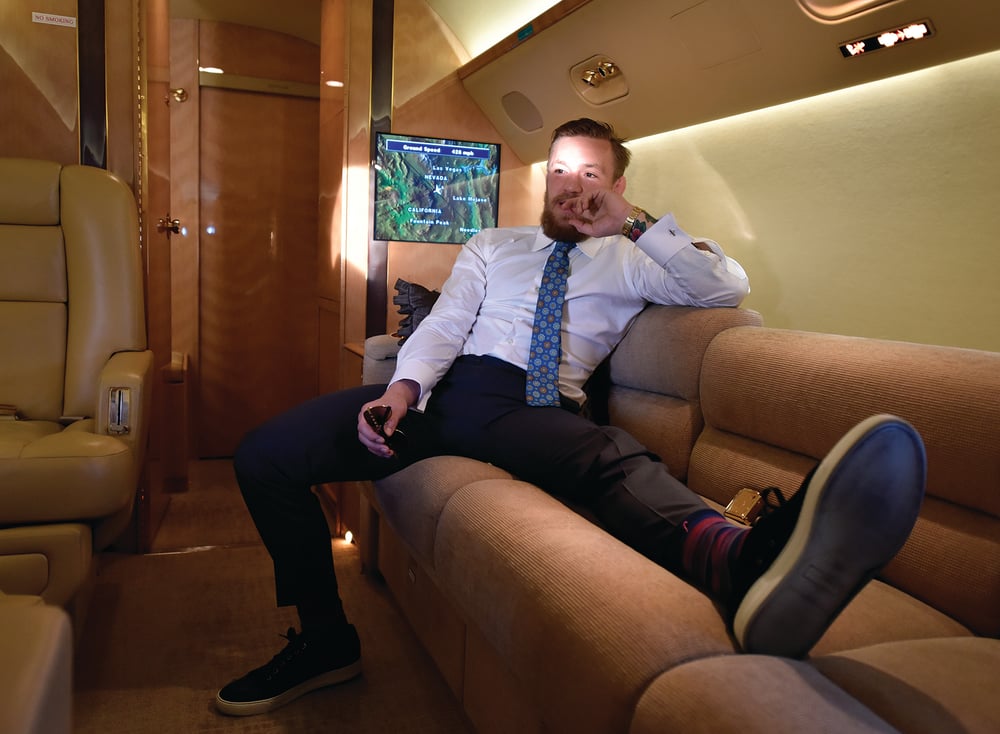
Issue 129
June 2015
The global expansion of MMA means hopping time zones is now an essential part of prizefighting. FO has some essential tips to KO jet lag
Jet lag is a thorn in every globetrotting athlete’s side. The chronic swirl of tiredness caused by traveling across continents can zap the energy from even the most in-shape athlete. Add the pressure of cutting weight, training and media obligations, and the effects could be compared to medieval torture.
This feeling of tiredness and confusion after a long aircraft journey is the last thing a fighter needs before a fight, and it gets worse with every additional zone they cross. The body’s circadian rhythm (inner body clock) is blown out of sync with its surroundings, which can cause a glut of physiological symptoms.
Jet lag effects can include insomnia, dehydration, headache, fatigue, poor coordination, confusion, anxiety, nausea, sweating and muscle soreness.
One of the best ways to battle these symptoms is to acclimatize to your surroundings long before you step into the cage. For fighters in the upper echelons of the payroll it’s easily done. Many main-event stars can afford to move their training camps to fight town for the final few weeks of camp.
But for those who have yet to get a sniff of the big bucks, that kind of investment just isn’t possible. Though Russian lightweight Alexander Yakovlev had to travel about 4,500 miles across seven time zones from Saint Petersburg, Russia to Fairfax, Virginia for his fight with Gray Maynard on the UFC Fight Night 63 prelims, his show money was just $8,000. Hardly a purse that could fund an extended stay in the Old Dominion for him and his cornermen. Fighters who get called up on short notice might not even get that choice, whether they could afford it or not.
More and more mixed martial artists have to fly internationally as a growing number of shows and promotions look for marketable talent from around the world. It’s hard to turn down a paycheck, and a spot on a major fight card is like gold dust for up-and-coming fighters. Even if it’s several time zones away, it’s an opportunity they can’t turn down.
So, for the intercontinental MMA commuter, here are eight weapons
to combat the symptoms of the dreaded lag.

Adjust your sleep patterns
A few days before you travel, try hitting the sack and getting up at the times you would at your destination. Try going to sleep and waking earlier if you’re traveling east, or later if you’re traveling west. This will help train your body’s inner clock to cope with the change of scenery.
Hydrate
This is arguably the easiest thing you can do. Harvard Medical School says the best practice is to drink water before, during and after your flight. However, if you’re flying out for a contest a couple of days before your bout, you’re likely to be cutting weight and excess water may be something you’re trying to avoid.
Go West
This would make no sense if you were flying from North America to Europe, for example, because taking the long way around would do no good at all. But where possible, you should try to fly west because your body is designed to adapt to a regular rhythm of daylight and darkness. Flying through time zones to the west will keep your body in sync.
A little blue pill
Researchers in Argentina found that viagra could reduce jet lag symptoms. They also said the male impotence drug plays a role in the regulation of the inner body clock. That could be a potent double-whammy, but you might want to leave this one at home if you’re stripping down to your smalls for the weigh-in.
High-protein meals
Because MMA fighters are some of the most well-conditioned athletes in the world, it’s no stretch to imagine they’ll eat plenty of high-protein meals, so this is another easy one. Avoid nasty airplane food and eat the protein meals before and after your journey. Protein feeds the brain to produce neurochemicals to battle the symptoms and increase alertness throughout the day.
Avoid stimulants
Time zone hopping puts the inner body clock in turmoil, so adding a stimulant like coffee or an energy drink before or during the flight might not be a great idea. Stay away from anything else that could alter your sleeping pattern too. Caffeine can also cause dehydration, which can further disrupt your body’s ability to adapt to your destination.
Natural light
It’s easier to rouse yourself when the sun is shining. The cycle of natural light is important for setting the body’s internal clock, so plan flights so the plane lands in daylight. You should feel more like staying awake and adjusting to your new schedule.
Make fists with your toes
OK, so there might not be too much science behind this, but it worked for John McClane. At the beginning of Die Hard, Bruce Willis’ character takes the advice of a fellow flyer to cure his traveling woes. Within hours, he’d taken down a murderous gang of terrorists at Nakatomi Plaza single-handed. Perhaps it could help you gear up for some mano e mano combat too?
...









